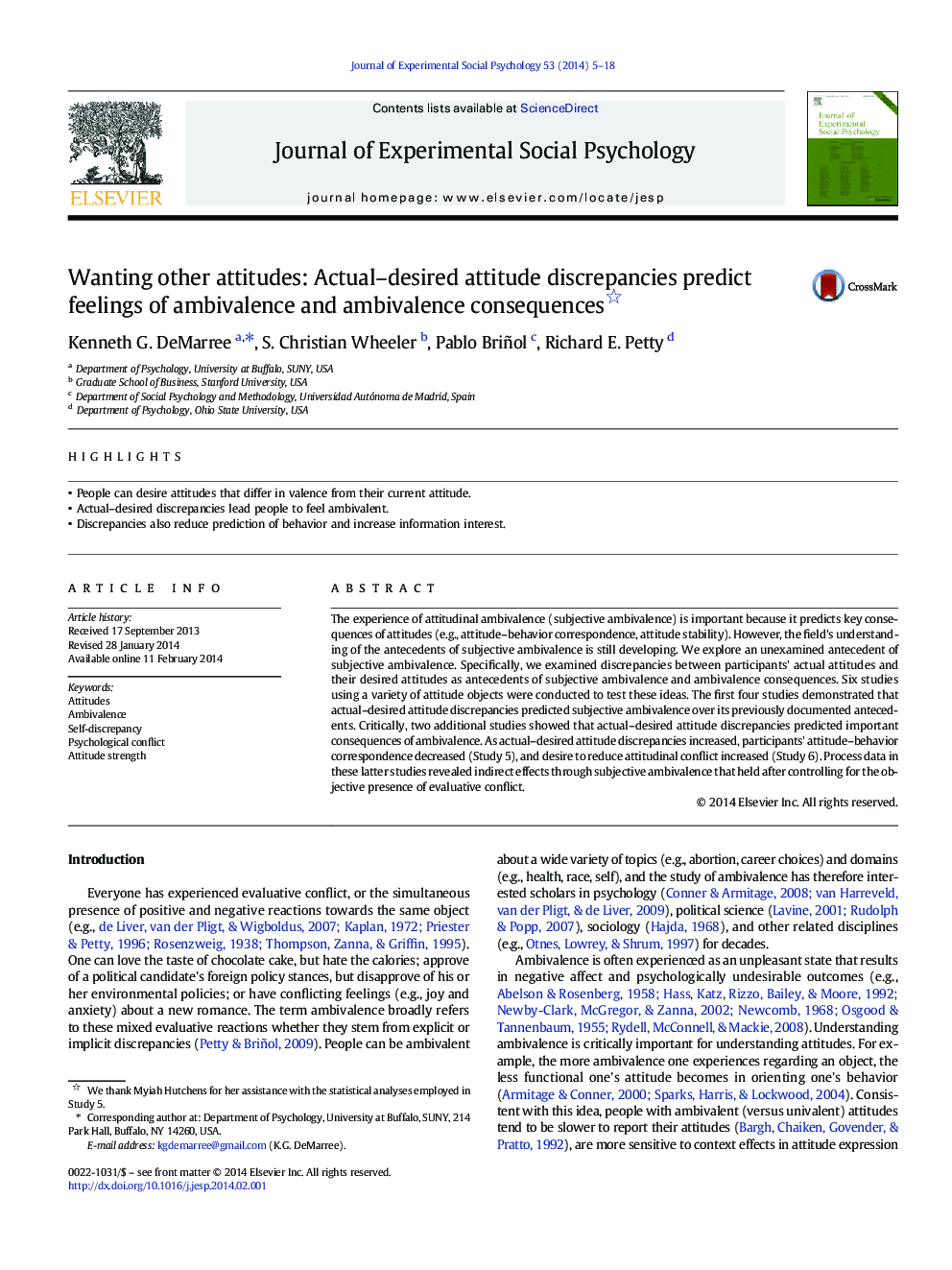| کد مقاله | کد نشریه | سال انتشار | مقاله انگلیسی | نسخه تمام متن |
|---|---|---|---|---|
| 947822 | 1475870 | 2014 | 14 صفحه PDF | دانلود رایگان |

• People can desire attitudes that differ in valence from their current attitude.
• Actual–desired discrepancies lead people to feel ambivalent.
• Discrepancies also reduce prediction of behavior and increase information interest.
The experience of attitudinal ambivalence (subjective ambivalence) is important because it predicts key consequences of attitudes (e.g., attitude–behavior correspondence, attitude stability). However, the field's understanding of the antecedents of subjective ambivalence is still developing. We explore an unexamined antecedent of subjective ambivalence. Specifically, we examined discrepancies between participants' actual attitudes and their desired attitudes as antecedents of subjective ambivalence and ambivalence consequences. Six studies using a variety of attitude objects were conducted to test these ideas. The first four studies demonstrated that actual–desired attitude discrepancies predicted subjective ambivalence over its previously documented antecedents. Critically, two additional studies showed that actual–desired attitude discrepancies predicted important consequences of ambivalence. As actual–desired attitude discrepancies increased, participants' attitude–behavior correspondence decreased (Study 5), and desire to reduce attitudinal conflict increased (Study 6). Process data in these latter studies revealed indirect effects through subjective ambivalence that held after controlling for the objective presence of evaluative conflict.
Journal: Journal of Experimental Social Psychology - Volume 53, July 2014, Pages 5–18